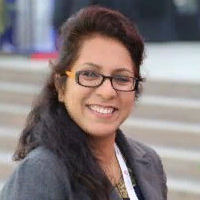
Neha Kishore
Work place: Chitkara University, Solan, Himachal Pradesh, India
E-mail:
Website:
Research Interests: Information Security, Parallel Computing, Information-Theoretic Security
Biography
Neha Kishore received her PhD in Computer Science and Engineering from Chitkara University, Himachal Pradesh, India in the year 2015. Her area of research includes Parallel Computing, Information Security and Digital Forensics. She is currently working as an Associate Professor in Computer Science Department, Chitkara University, H.P., India for last eight years. She has many research papers and poster presentations at International Journals/Conferences in her credits. She is also a member of ACM, IAENG, Internet Society, CSI and has been also certified as an ACM Ambassador.
Author Articles
PRDSA: Effective Parallel Digital Signature Algorithm for GPUs
DOI: https://doi.org/10.5815/ijwmt.2017.05.02, Pub. Date: 8 Sep. 2017
RSA based Digital Signature algorithm is an electronic scheme to ensure the security, authenticity and integrity of an electronic document intended to be used on Internet. Due to the involvement of RSA in signing and signature verification which is based on the series of modular multiplications and modular reductions on very large integers, the RSA based digital signature algorithm become compute-intensive and takes lot of time and energy to execute. A potential solution to this problem is to use the massive parallel powers of the multiprocessors of GPU that can simplify its complex computational part via CUDA programming. This paper presents a faster GPU based pRDSA algorithm which serves the same purpose as the RSA Digital Signature Algorithm but with less computational complexity. Proposed algorithm is an energy efficient parallel version of Digital Signature Algorithm to achieve high performance in the area of network security. It is based on SIMD model of parallel programming and implements repeated square-and-multiply method to compute the digital signature. The conceptual model of pRDSA and its performance have been discussed in this paper.
[...] Read more.Other Articles
Subscribe to receive issue release notifications and newsletters from MECS Press journals